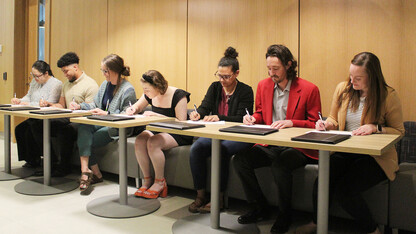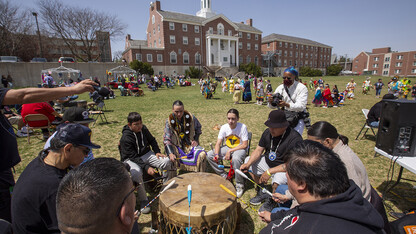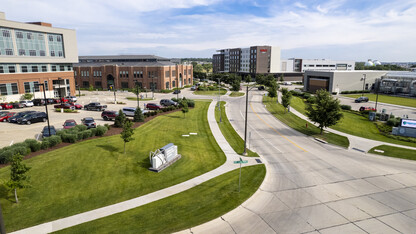· 3 min read
Moser busting myths surrounding family, consumer sciences
For family and consumer sciences educators, misconceptions are just a part of the job. But some worry that these misconceptions could potentially deter future educators from joining the family and consumer sciences workforce.
Sheree Moser, assistant professor of child, youth and family studies, is working to put an end to those worries. Since joining the University of Nebraska–Lincoln in the fall of 2009, Moser has taught graduate and undergraduate courses that train family and consumer science teachers both on campus and online.
The field traditionally focuses on issues that encompass human development, family finance, interior design, nutrition and textiles, among others. Following graduation, family and consumer science teachers are certified to teach those subjects, as well as health and health sciences, to grades 6-12.
Moser said that diversity of career paths is ensuring the continued value of family and consumer sciences curriculum. According to data that Moser has collected since joining Nebraska, undergraduate enrollment in the university’s family and consumer sciences program jumped 253% from 2009 to 2019, with graduate enrollment leaping 866% over the same period. Because alternative certifications are becoming more common, the program supports educators who are pursuing that path, as well.
“FCS is growing and thriving, and I love the fact that we are one of the only content areas that our students live as soon as they walk out of our classrooms,” Moser said.
Another common misconception, Moser said, is that there are not many job openings in the family and consumer sciences. Yet in 2021, 61 positions have come open, consistent with past employment opportunities over the last 10 years. Nearly 90% of the positions available over the past decade are full-time, with about 65% coming open in urban areas. The notion that family and consumer science programs are closing in schools has also been dispelled, Moser said, with only nine Nebraska openings going purposely unfilled since 2011.
The future looks similarly bright, she said. As of May 1, 90% of the 523 open positions are classified as full-time, and 65% of them are located in the larger Class A and Class B school districts. But new programs are on the rise in smaller communities, too, with 10 of the 14 new positions emerging in Class C and D schools.
At the university, more than 120 students are currently pursuing bachelor’s or master’s degrees to teach family and consumer sciences, which Moser cited as a sign that the profession is not just surviving, but thriving.
“As with ‘Field of Dreams,’” she said, “if you build it, [they] will come.”







